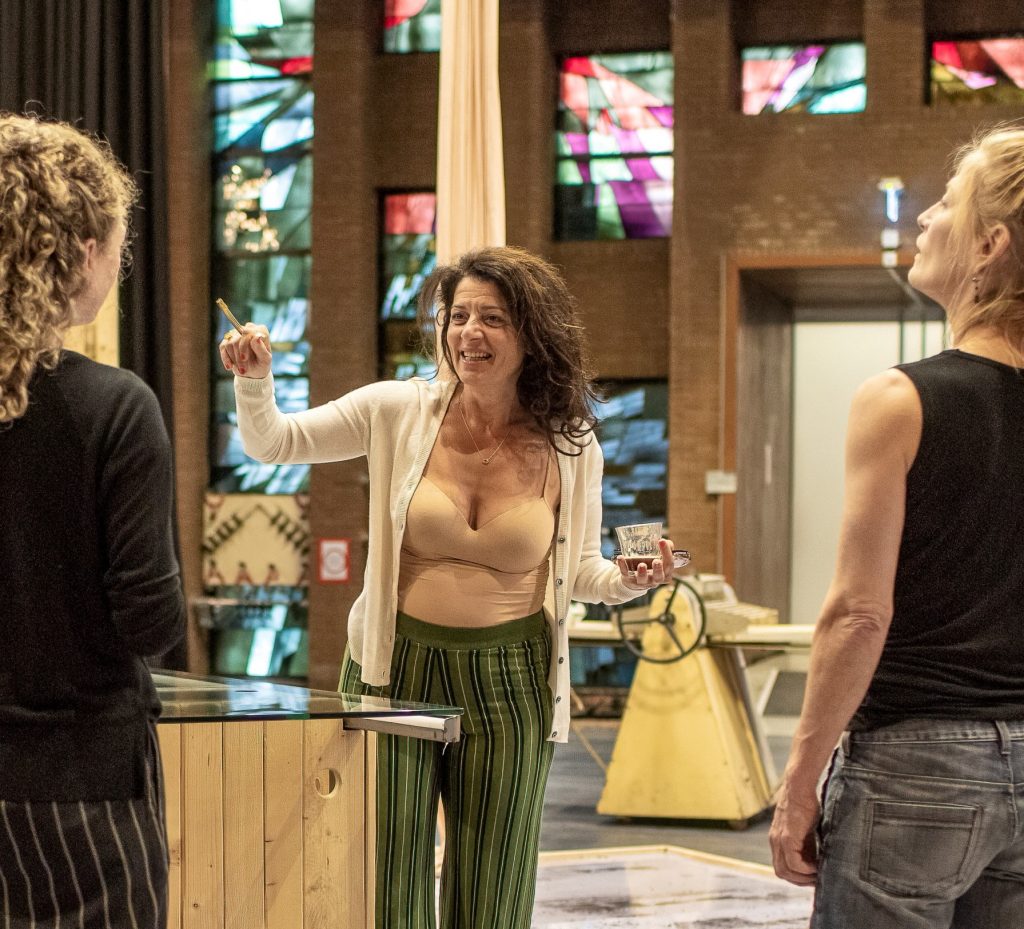Interview Ola Mafaalani

She is also called the Empress of theatrical fantasy. Ola Mafaalani directs A Midsummer Night’s Dream by Benjamin Britten, based on the famous comedy by William Shakespeare. In her direction, not only all senses but also essential issues are addressed. “This opera shows how cruel we can be in the name of love.”
You are a well-known and idiosyncratic theater director. This is your second opera direction and debut with Opera Zuid. How did it come your way?
‘I am often told that I direct theater as if it were opera. I can’t read a note, but I feel the music. You can see that musical rhythm in the editing, the light and the texts in my performances. When I said that I would like to direct a film or opera, invitations immediately followed.’
How do you feel about Benjamin Britten’s music?
‘His music is very minimalistic and only indicates something, an androgynous tone color that fills in almost nothing. As a listener you float and color the music with your own biography of love. Like a dish that smells delicious, but only reveals itself on your tongue.’
A Midsummer Night’s Dream is not only a treat for the eyes and ears, but for all the senses. Why choose this approach?
‘When I see something, an experience flows through my body. I don’t have a language to express that feeling, but the tonal layers in music have exactly the same frequency. That’s why I’m such an opera lover; opera has the language to represent all sensory experiences.’
What do you hope to achieve with this sensory experience for the audience?
‘The children’s choir doesn’t just come on and sing, but bake and cook while singing. Together with a cook they melt chocolate and play with it, flour flies around. It is my association with unconditional love as experienced by children. They do not yet know the romantic love the play is about. When you see those children at work, you yourself experience that full love for everything around you. It is my need to let this opera be your own love affair. Opera did not originate as an elitist art form. It started in the middle of society as a translation of a normal life like yours and mine.’
What does A Midsummer Night’s Dream say about our lives?
‘This opera describes our love life in all its forms and is about what we cannot see. It is a dream in which nightmare and paradise alternate. Fairy King Oberon’s drop of magic juice is our own life situation. Do you know why you fall in love with one and not the other? Love is just as Britten and Shakespeare describe it: an inexplicable drop.’
Beautiful is not enough for you. What essential issue do you think A Midsummer Night’s Dream addresses?
‘A Midsummer Night’s is a social piece about selfishness within love. It’s not for nothing that it starts with a fight divorce over a young child. And what about the law that decides who you can love? That has nothing to do with love. The opera shows how cruel we can be in the name of love. We can make our partner’s life hell and still say “I love you”. But these words carry an obligation. That goes for all your relationships. And here lies the connection with society. A politician, for example, has an integrity obligation towards his citizens. Don’t just think about your career, but also about the for whom and why of your actions.’
You have often directed plays by Shakespeare. What does he mean to you?
‘I have been in love with Shakespeare for so long, a man full of playfulness, vitality and poetry. In high school, we read Shakespeare sonnets in English class and I couldn’t understand a word of it. And yet I was enchanted, because his words touched my soul. Now that I’m working on A Midsummer Night’s Dream, I feel like a medium of Shakespeare. I can’t talk to him, but I can interpret his texts and build on them. We are a team. I go to bed with him and wake up with him every day. And Britten is in between.’ Ola Mafaalani laughs exuberantly. “Monogamy became polygamy, A Midsummer Night’s Dream.’
For more information about A Midsummer Night’s Dream, click here.
Interview: Manon Berns
